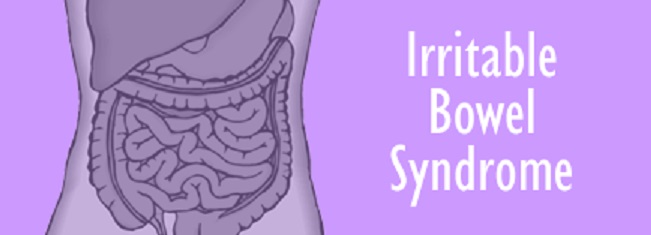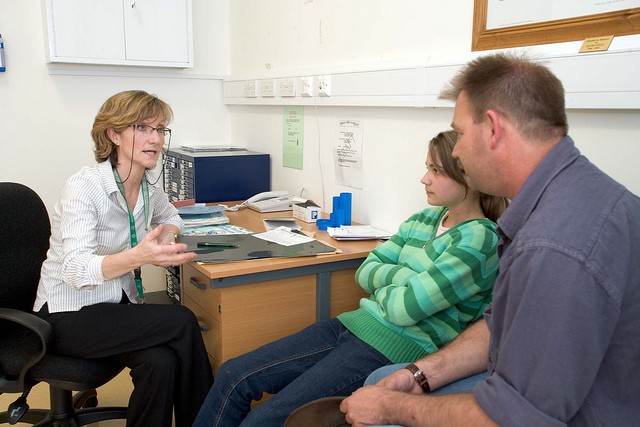Irritable Bowel Syndrome Overview
Table of Contents
Also known as IBS, irritable bowel syndrome is a chronic health condition that affects the colon (large intestine). It causes abdominal pain, cramping, diarrhea, bloating, constipation, and gas. In spite of several rather uncomfortable symptoms, IBS – as opposite to Crohn’s disease or ulcerative colitis, which are inflammatory forms of bowel disease – does not increase the risk of colorectal cancer. Very few people that suffer from IBS experience hard signs and symptoms. Some are able to keep the condition under control by adhere to a healthy lifestyle and diminishing stress levels. Others however are compelled to opt for counseling and medication.
Irritable Bowel Syndrome Causes
IBS can be caused by various factors, although experts don’t know exactly what triggers this condition. The walls of our intestines are covered in muscle layers; these contract and relax while moving food from the stomach throughout the intestinal tract. People with IBS experience stronger contractions that are more severe and that trigger bloating and gas. These abnormalities create great discomfort in the abdomen, and the body starts overreacting to the changes, thus leading to constipation or diarrhea.
Irritable Bowel Syndrome Symptoms
As far as IBS signs and symptoms are concerned, these vary from one individual to another. Among several of the most common, we should mention:
- Bloating
- Cramping or severe abdominal pain
- Gas
- Constipation
- Diarrhea
When to seek medical care for IBS
1 in 5 Americans has signs and symptoms of IBS, and yet very few choose to seek medical assistance. It is important to see a physician if you’re experiencing constant changes in bowel habits, or if you sense additional signs and symptoms of irritable bowel syndrome, because these may hide a more several condition like colon cancer. In case you’re experience the following symptoms, then you should definitely seek medical care:
- Severe abdominal pain that keeps getting stronger
- Rectal bleeding
- Weight loss
Only a skilled physician will be able to help relieve the pain, avoid additional complications, and prevent your IBS from turning into a more serious condition.
Irritable Bowel Syndrome Diagnosis
There’s no exact test available for IBS, and that’s mainly because it doesn’t cause detectible, obvious abnormalities within people’s digestive systems. A general diagnosis is given when the patient has general IBS symptoms. If you’ve had any of the following symptoms in the last 6 months, then your doctor may prescribe you medication:
- Bloating
- Abdominal pain or severe discomfort in the stomach
- Changes in bowel habits – diarrhea, passing stools, or constipation
Your doctor will consider treatment only if your symptoms have been consistent. Even though irritable bowel syndrome can be diagnosed after the above mentioned symptoms alone, sometimes further investigation is required to rule out other conditions. You may be asked to take a blood test because such a chronic infection may be causes by IBD, inflammatory bowel disease.
Irritable Bowel Syndrome Food Triggers
Foods that dehydrate the body cause constipation in patients suffering from IBS. Make sure to avoid:
- Chocolate
- Red meat
- Dairy products (cheese, milk)
- Caffeine
- Alcohol, fizzy drinks
To prevent constipation, include more beans, prunes, whole grains, veggies, and kiwi into your daily diet.
Irritable Bowel Syndrome Food Treatment
IBS symptoms are usually managed by adopting a healthier diet. But in some cases, your physician may also recommend medication.
- Antispasmodics – these are meant to help reduce cramps and abdominal pain
- Antimotility medicines – these help relieve diarrhea. Loperamide in particular slows muscle contractions in the bowel, thus giving more time for the body to make solid stools.
- Laxatives – these help reduce constipation
- Low dose antidepressants – originally aimed at treating depression, these can also reduce cramps and stomach pain
Irritable Bowel Syndrome Home Remedies
Non-traditional therapies may help relieve IBS symptoms, although these treatments have not been backed by medical proof, and should only be consider under the strict supervision of a nutritionist or physician.
- Acupuncture – studies have shown that acupuncture may help relieve IBS symptoms
- Herbal treatments – peppermint for example, is an all-natural antispasmodic. It relaxes the muscles within the intestines, thus calming IBS symptoms. For the effects to last longer, patients may be recommended to consider enteric-coated peppermint capsules.
- Probiotics – also known as “good” bacteria, probiotics are found in certain dietary supplements and foods like yoghurt. It has been suggested that IBS may be triggered by lack of good bacteria in the intestines; thus a diet based on probiotics may help ease those unpleasant symptoms.
Irritable Bowel Syndrome Medications
Since it’s unclear what causes IBS, the basic treatment is centered on relieving the symptoms in order to allow the patient to live as comfortable as possible. Mild symptoms can be kept under control by managing diet changes and stress. However, if your condition is in a severe state, a physician may recommend medications.
There are two medications approved thus far: Alosetron (Lotronex) and Lubiprostone (Amitiza). Alosetron relaxes the colon and diminishes waste movement in the lower bowel, while Lubiprostone increases fluid secretion in the small intestine, and it is only prescribed for women with severe constipation and IBS.
Irritable Bowel Syndrome Diet & Lifestyle Changes
What you put inside your body may have a great effect on your IBS symptoms. However this doesn’t mean that proper food will cure this chronic condition; because it won’t. Certain foods may help relieve the pain by improving your digestion. First of all, it is fundamental that you hydrate your body. Include at least 8 glasses of water into your diet daily and try to avoid dairy, fried or fatty food. Whole-wheat past, whole grains, brown rice, and low-fat foods are highly recommended. In some cases, your doctor may also recommend dietary fiber supplements, which are extracted from natural fibers – lignin, cellulose, pectin, and psyllium.
Irritable Bowel Syndrome Prevention
Stress and anxiety may be the cause of someone’s upset stomach, and that’s a common thing. However severe pain and discomfort in the abdominal area can be a sign of irritable bowel syndrome. Don’t ignore the symptoms and seek help as soon as you sense that the discomfort is frequent and increasingly more painful.
If you’re too stressed, a psychiatrist or psychologist may be able to help reduce the strain and anxiety you’re feeling. Another great technique to prevent IBS from advancing is called biofeedback. It is a stress-reducing technique that’s able to slow down your heart rate and reduce muscle tension. The goal is to make you relaxes so that you can learn to cope with your stress more easily.
Irritable Bowel Syndrome Prognosis
Bottom line is IBS (irritable bowel syndrome) is a chronic disorder that triggers bowel changes and severe abdominal pain. It shouldn’t be confused with IBD (inflammatory bowel disease), and it can occur at any age. Physicians don’t have a clear explanation for the manifestation of IBS, although they argue that it has to do with stress, diet, and general lifestyle. There’s no cure for IBS, and the treatment is based on relieving the symptoms.
Those suffering from irritable bowel syndrome are advised to make some drastic lifestyle changes if they want their digestion to improve, meaning they’re advised to ditch high-fat foods, fizzy drinks, and dairy; and include more exercise, yoga and meditation into their daily routine.



